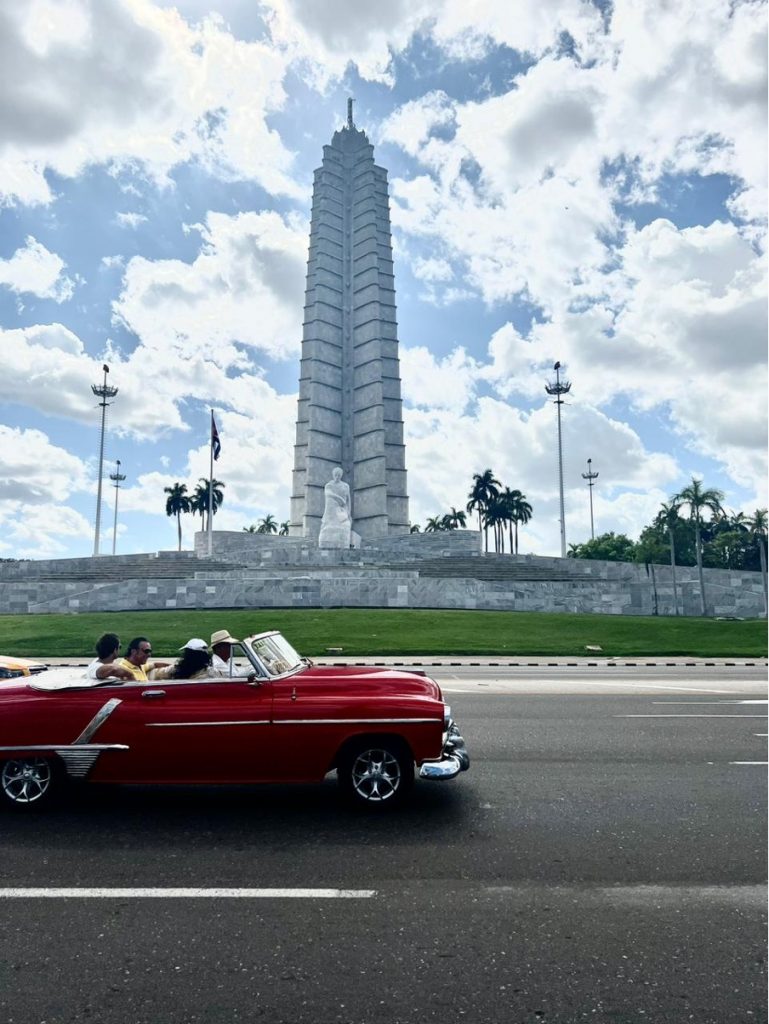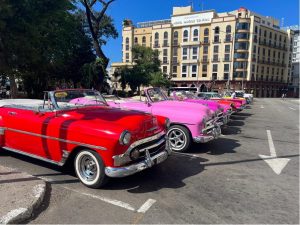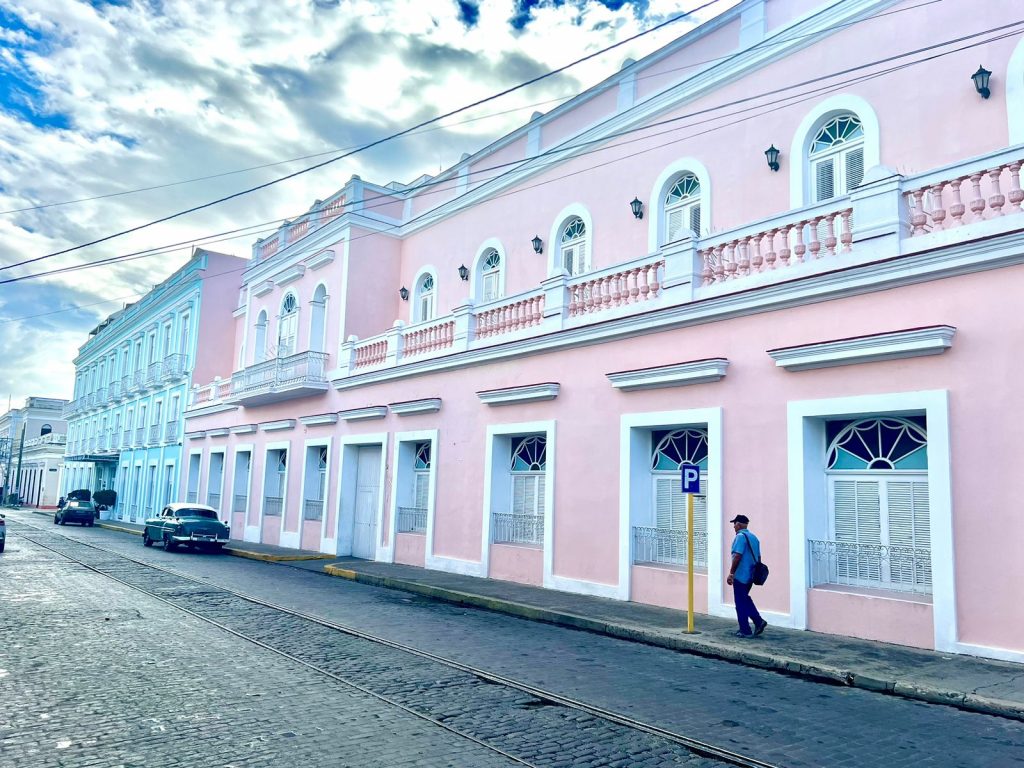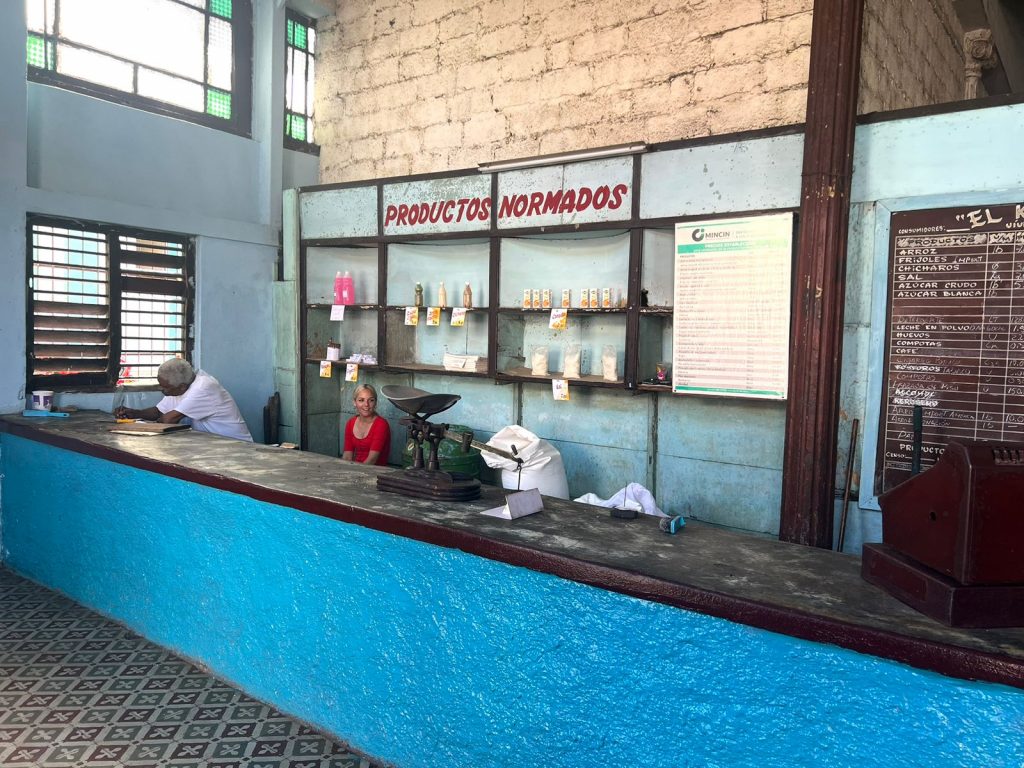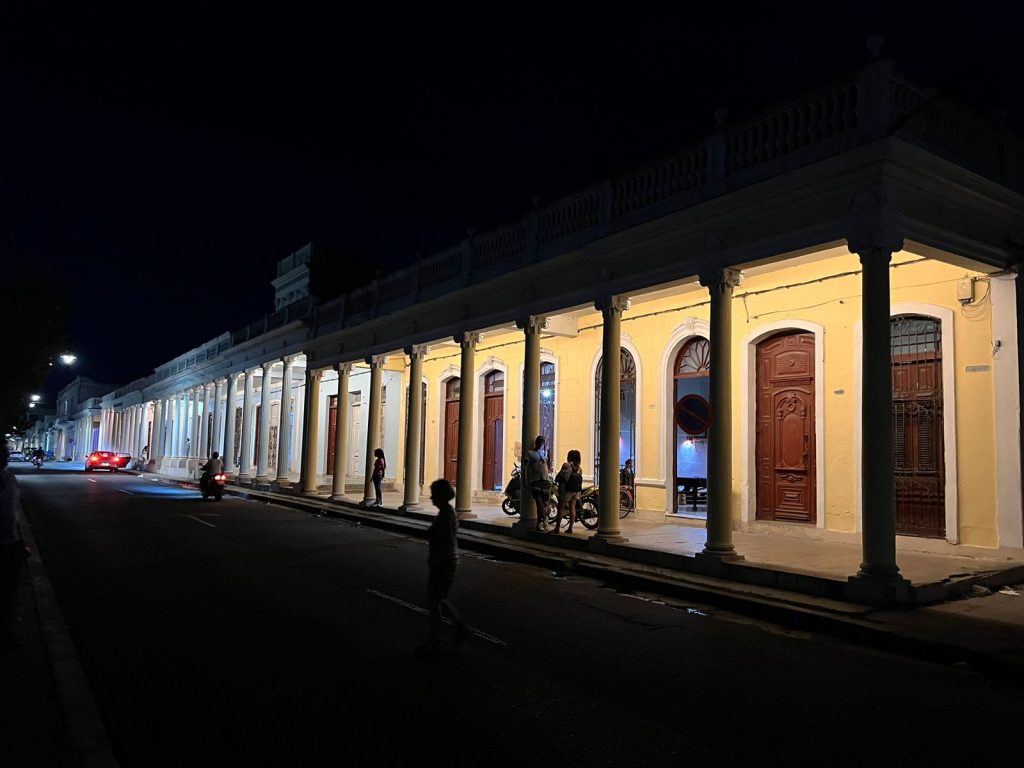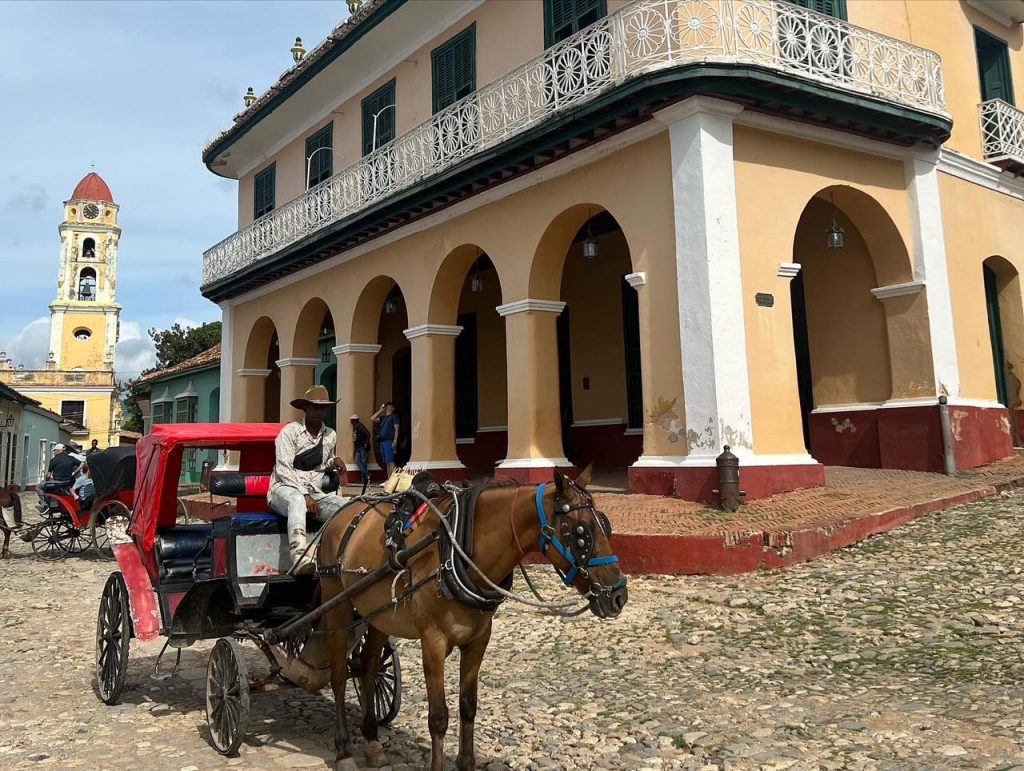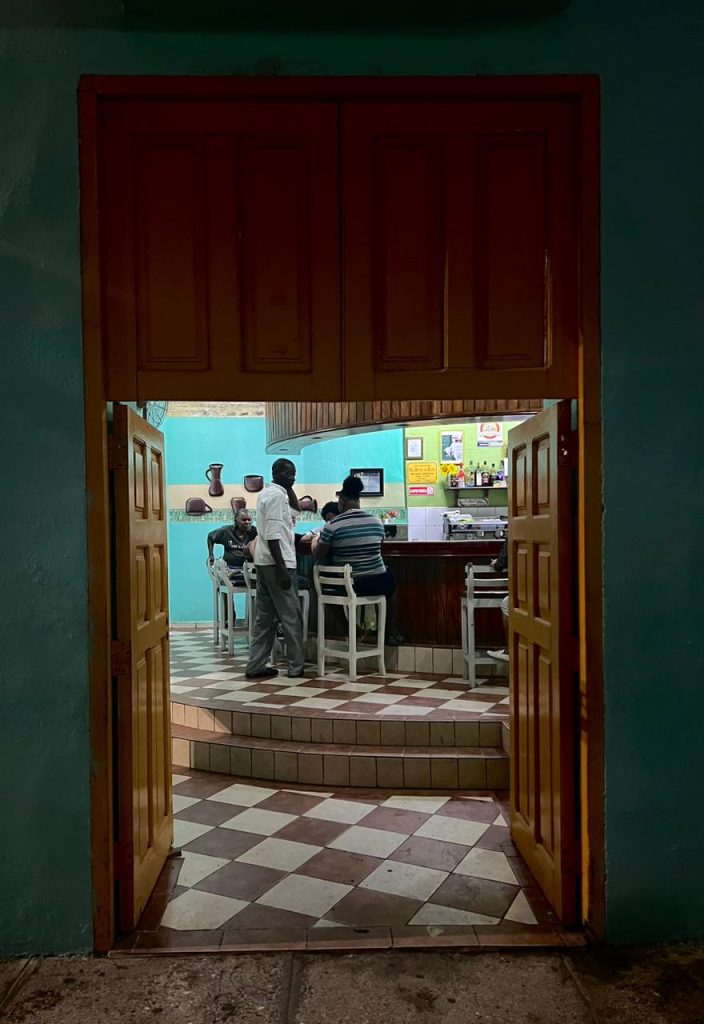Quote of the week
[T]he moral point of the matter is never reached by calling what happened by the name of ‘genocide’ or by counting the many millions of victims: extermination of whole peoples had happened before in antiquity, as well as in modern colonization. It is reached only when we realize this happened within the frame of a legal order and that the cornerstone of this ‘new law’ consisted of the command ‘Thou shall kill,’ not thy enemy but innocent people who were not even potentially dangerous, and not for any reason of necessity but, on the contrary, even against all military and other utilitarian calculations. … And these deeds were not committed by outlaws, monsters, or raving sadists, but by the most respected members of respectable society.
Eichmann in Jerusalem: A Report on The Banality of Evil
A hustle here and a hustle there — how things work (maybe) in Cuba
I have been travelling through Cuba over the past three weeks — a country venerated for its socialist commitments by both faux and sincere ‘revolutionaries’. But I still do not understand much about the country. The facts do not fit the theory, because the ideological framework that most South Africans — from the left and the right — rely on to make political and economic sense of the world doesn’t seem to work here.
The first thing that strikes me on my arrival in Havana is not all the beautiful vintage cars — although it’s hard to miss them once you start noticing. It’s the complete absence of advertising billboards, or of advertisements of any kind whatsoever. I love the feel this gives to the city and to all the other towns (Cienfuegos, Trinidad, Camagüey, Santa Clara and Jibacoa) I visited during this trip. It is difficult to describe just how significant this is. It’s a bit like visiting a country where there are no plastic bags or any other litter to be seen.
But what this might mean for understanding the politics and economy of Cuba, I cannot say.
What also strikes me on my first day wandering through the (often carless) streets of central Havana are the small tuckshops on almost every corner — essentially people selling beer, cigarettes, sweets, cooking oil and other essentials from the front room of their houses or apartments, the meagre stock usually on display on a table or on a small stand positioned in a front window.
My first day in Havana is stressful in a way that travel in the age of smartphones and easy internet access now seldom is. This is mostly because of the complicated way that money works in Cuba. The websites I consulted before my departure from Cape Town all warned that, as a tourist, one should bring along hard cash for the entire amount of money one plans to spend during one’s trip — either in dollars or euros or (in my case) a combination of the two.
ATMs are scarce and they do not always work. Also, there are often long queues at ATMs. But, more importantly, the exchange rate for ATM withdrawals is 110 pesos to the euro, (the “official rate” is 25) while the unofficial exchange rate (as the taxi driver who took me from the airport to my casa particulares when I arrived in Havana immediately told me) is now closer to 250 or 260 pesos to the euro or dollar.
Even more confusing is that higher-end independent restaurants and some private shops quote prices in euros, not in pesos, while intercity shared taxis (called colectivos) can only be paid for in cash, and only in euros or dollars. Change is often given in pesos, though, so you need to ask beforehand whether the change will be calculated using the official or unofficial rate.
And then there is the matter of inflation. Currency reforms adopted in 2021 have led to rampant inflation — up to 400% — which means that prices quoted on the internet in pesos are invariably wrong, often by a lot. The restaurant menu that says they sell a beer for 100 pesos? Wrong. It will now be 300 or 400 — or 500 if you are a tourist with no street smarts.
Then there are the government shops, where the prices are all quoted in euros, and where one can only pay with a credit or debit card. To a South African these shops look rather odd, with their goods often displayed in large display cases behind a counter — one has to ask the shop assistant what you need: one case filled with toilet rolls, another stacked with tinned tomatoes, another with tractor spare parts. (Okay, I made up the last bit, but you get the idea.)
Often these shops sell only two or three products, one shelf filled with one type of deodorant, another with shower gel and a third with shampoo. Usually, a stern woman guards the entrance, admitting only one or two customers into the store at a time and checking your receipt against the goods you bought to make sure you paid. (They do the same kind of checking when you leave the Ultra Liquors store in Green Point, Cape Town.)
No hablo español
The fact that I do not speak Spanish in a country where very little English is spoken is also a challenge. Back in Cape Town, I downloaded an app on my phone to do translations from English to Spanish and back, which worked well when the internet was not throttled (when this happens — about 12 to 16 hours a day — phone calls and text messages work fine, but any other web-based access to the internet becomes impossible). That said, ordering a Cuban SIM card back in Cape Town — which I picked up at the airport in Havana on arrival — turned out to be a wise move because access to Wi-Fi, while theoretically possible, was seldom practically available.
Then there is the troubling matter of the queues.
I am distressed (not wanting the ideologues from the Free Market Foundation or the Institute of Racist Relations to be proven right) when I spot a long queue of people waiting to buy bread in Cienfuegos, a beautiful town famous for its French colonial architecture. Yes, I have read that there is a shortage of petrol in Cuba and that food production has fallen dramatically since the start of Covid, but queuing for bread is not a good look.
It takes me a while to figure out (or to think I have figured out) that these queues (but not others) are for the government-subsidised food rations (subsidies by up to 90%) that every Cuban — regardless of financial position — is entitled to. In essence, this is a basic income grant paid in food — which would have been a pretty good idea to implement in South Africa had it not been for the obvious problem that the system would soon be fatally corrupted. These shops usually have details of the rations each person is entitled to written in white chalk on a blackboard.
While wandering the back streets of Cienfuegos I spot what strikes me as one of the prettiest of these shops in Cuba. (But as with everything else in this piece, I might well have got this wrong.)
At this shop, there is no queue.
In Trinidad, another beautiful town, a Cuban artist who talks to me at length about the town’s slave history and the influence that slaves had on Cuban religious practices, implores me to avoid government-run businesses and to frequent independent establishments only. Until 2011 such establishments were illegal (which does not mean they did not exist), but in that year the government implemented a scheme which allowed Cubans to run establishments in prescribed areas of the economy. One needed to apply for a permit, which had to be paid for, but on what basis such decisions were made is not clear.
In 2021, this was changed, with everything allowed if a permit was granted, except for a list of prohibited activities. Areas that are especially important for the state for economic or political-ideological reasons remain beyond the reach of the self-employed, but all other areas have been opened to citizens.
Highly qualified professionals such as doctors, dentists, architects, lawyers, engineers or researchers in science and development, together with the printing of newspapers and books, the manufacture of motor vehicles, motorcycles, ships, trains and airplanes, as well as the press and culture sectors all remain under government control.
Economic theory
It is Tino — a tall, slender, Dutch guy of more or less my age who befriends me on the terrace of a government restaurant and bar in Camagüey, after asking me if I am Dutch and then telling me (it’s more of an order that an invitation) to join him at his table for another mojito (he is paying) — who offers another explanation for the queues in non-rationing shops.
First, he tells me that he is known as Tino in Cuba because his real Dutch name —Thijs or Thijn, or something similar — is too difficult for Cubans to pronounce. Then, when I ask him what he actually does for a living, he laughs, lights another cigarette, and says that he is a hustler. A line he obviously trots out regularly. Mostly, Tino says, he hustles by arranging money transfers to Cuba for ignorant tourists from Europe. “I will never be a Cuban,” he says, “but I have learnt to hustle like a Cuban.”
It is then that he offers Itme his theory on the Cuban economy and society, which
It is then that he offers me his theory on the Cuban economy and society, which he expands on in what he calls one of his “books” (a PDF document) which he WhatsApps to me after our jolly lunch at a “real Italian pizzeria” where, he says, the owner’s wife can be tricky.
“Westerners,” he says, “do not understand that Cuba has a supply economy, not a demand economy.” What do I know, only two weeks in a country that is as different from my own as it could possibly be, but Tino’s spiel does make some kind of sense to me just then.
Almost every product is available at some or other time, but you need to be patient, he says, which means that when something becomes available, the news spreads fast and people flock to buy it, hence the queues. This week it might be deodorant. Next week it might be milk or shampoo. When it becomes available you rush off and buy 10 or 20 of that product, knowing it won’t be available for another few weeks or even a few months.
Tino is enjoying himself now. Have you ever wondered why Cuba is not at all like those depressing Eastern European countries that suffered through socialism? he asks. When I shake my head as expected, he looks delighted and explains that this is “because Cubans are hustlers at heart”. Things work when they work because Cubans work around the rules. And everyone has a side hustle, preferably in dollars or euros.
I have no idea about the rest, but about Cuba not being at all as depressing as 1980s Eastern European socialist states, Tino is spot-on.
Two days later when a beautiful Cuban man tries to pick me up in a restaurant in Santa Clara — I assume money would have had to be involved for this pick-up to be consummated — I only notice after I politely rebuff his advances that he is wearing a T-shirt with the word HUSTLER printed in large silver capital letters on the front.
BACK TO TOP
